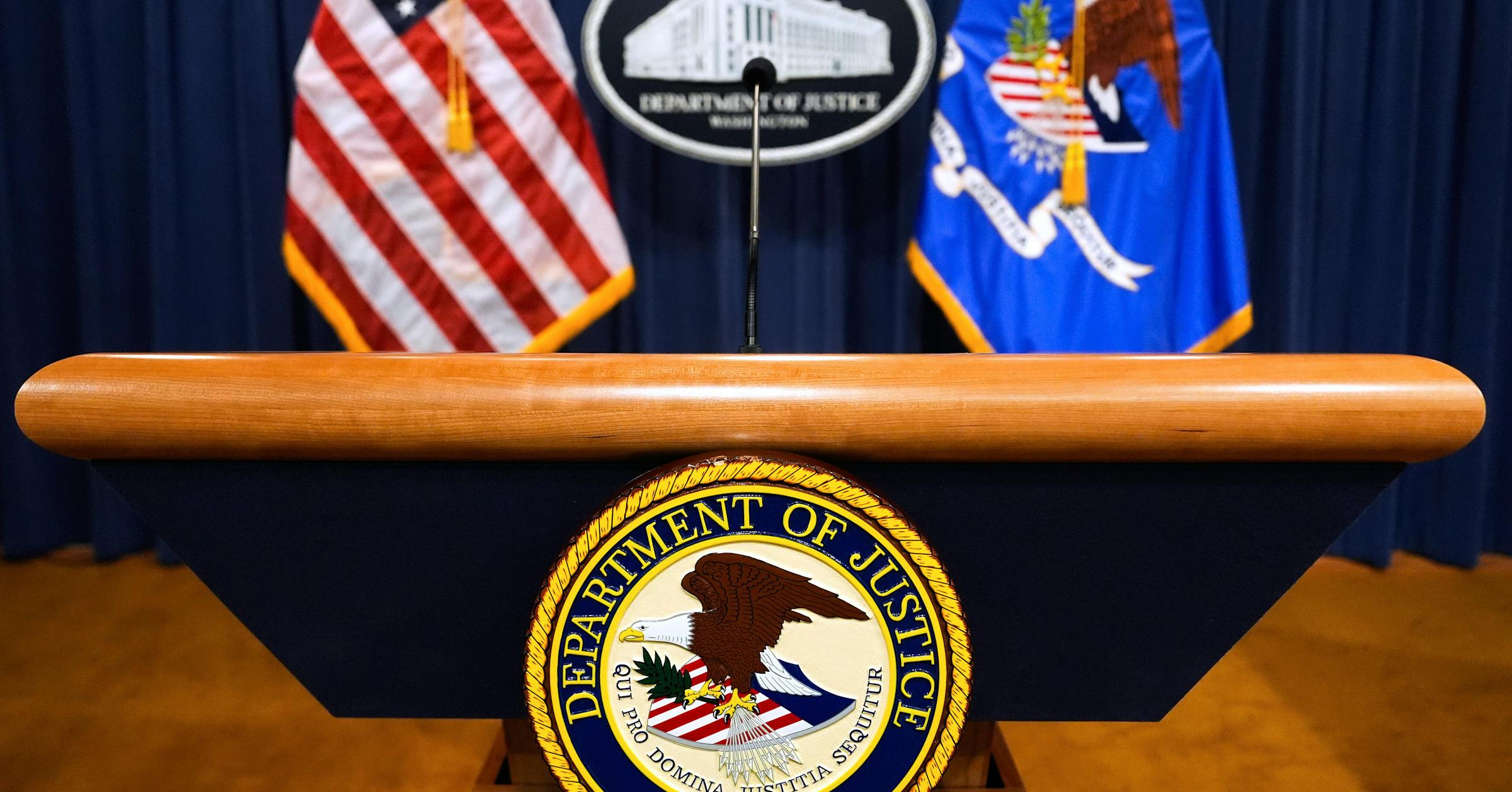
A front-page story in the Star Tribune last week reported that the respected U.S. Attorney for the crucial Eastern District of Virginia resigned. He had been pressured by President Donald Trump to prosecute two of Trump’s most despised adversaries, New York Attorney General Letitia James and former FBI director James Comey. But the veteran prosecutor found no evidence for prosecution.
Trump has now followed up by publicly demanding the prosecutions of James and Comey. To the vacated Virginia prosecution office, he has appointed one of his inexperienced personal lawyers. Trump recently tasked her with scouring the Smithsonian Institution for “improper ideology.”
I was a little surprised that the resignation story made the front page. Is it breaking news to anyone that our president would try to deploy the U.S. Department of Justice against his foes?
Like the frogs in a pot of water, the heat is rising. We face the growing danger of getting used to it. To fight habituation, I have been thinking back to 1979.
That year, I was a brand-new lawyer in the Justice Department in Washington, D.C. I essentially carried the briefcase of a senior official. But I got to see how the Justice Department ought to work.
The year before, the department had authorized the FBI to conduct a major sting operation, called “Abscam.” FBI agents posing as wealthy Arab sheikhs had set up a bogus company, “Abdul Enterprises.” They were secretly videotaping politicians taking bribes in return for help with private immigration bills, Atlantic City casino licenses and government contracts.
The investigation pushed the bounds of accepted investigation practices. After all, if you put $100,000 in front of someone, wouldn’t most people do you a favor? After it was over, the department issued new guidelines for FBI sting operations.
In 1980 and early 1981, Sen. Harrison Williams of New Jersey and six congressmen were convicted. Their convictions were all upheld on appeal against the expected complaints of entrapment. All but one were Democrats.
And here is the thing — Abscam was the product of a Democratic administration. In your wildest imagination, can you picture today’s Department of Justice pushing the envelope to take off the board six Republican votes?
And now? More than a dozen prosecutors who worked with special counsel Jack Smith on the federal prosecutions of Trump have been fired. Over two dozen lawyers who prosecuted the Jan. 6 rioters have been fired. The dismissal of criminal charges against New York Mayor Eric Adams looked like a deal. Investigations are now targeting many Trump adversaries, including former national security adviser John Bolton and Sen. Adam Schiff. Most of the lawyers in the Civil Rights Division and the Public Integrity Section have quit.
The Justice Department has never been a citadel of political independence. For heaven’s sake, Robert Kennedy was John Kennedy’s brother! During his tenure as attorney general in the late 1950s, William Rogers spent much of his time advising Richard Nixon how to become president. Nixon’s A.G. and later re-election chair, John Mitchell, served 19 months in prison for his role in Watergate.
Nonetheless, the modern history of the Justice Department shows how institutions can evolve to counter natural human tendencies. For example, every political leader would like to control law enforcement. What to do?
Following Watergate, Attorney General Benjamin Civiletti instituted protocols restricting communication between the department and the White House. In 1978, Congress passed the Ethics in Government Act, which included provisions for the appointment of independent counsel where the department might have a conflict of interest. In 1999, Janet Reno issued regulations streamlining appointments of politically independent special prosecutors, as Robert Mueller and Jack Smith would become.
The Justice Department story parallels the evolution of other institutions. In the 1800s, American newspapers were often just the organs of political parties. The exaggerated or fabricated stories of the “yellow journalists” in the 1890s helped drive this country into a war with Spain.
But in the early 1900s, professional journalism schools were established. Then in 1922, the American Association of Newspaper Editors was founded and the next year established the modern guidelines emphasizing accuracy and non-partisanship.
Academic freedom followed a similar trajectory. In the 1800s, professors were routinely fired for their political views. But in 1915, university professors announced the first comprehensive declaration of academic freedom. And in 1940, standards for teaching, research and tenure were established that remain in place today.
We are now seeing that such painstakingly built institutions are remarkably fragile. Historian and philosopher Yuval Harari centered his panoramic book about the history of humankind, “Sapiens,” on the idea that the foundation of civilization is no more than a collection of shared stories.
Take money. It is intrinsically worthless, but it powers the economy because we all believe the story that it has value.
Similarly, all institutions consist of just a fragile belief in our heads. The rule of law, democracy, civil rights, the United States itself? Just thoughts in our heads. Anyone can choose to trample the myth that those things are real. Think of an old-time peddler coming to a village and laughing at someone who offers him green pieces of paper for his wares.
If people stop believing in the fair, independent enforcement of laws that apply to everyone, why should anyone follow the law?
Our forebears labored to surround us with beneficent institutions. We have a basic safety net. Protection for food, drugs, travel, consumer products, air and water. A global order that works for peace and stability. Guarantees of civil, human and voting rights. History’s most durable large-scale democracy.
All that progress was hard-won, but its products are intangible — just wisps of thought floating in millions of heads. Our choice now is whether we allow ourselves to get used to the corrosive idea of legally sanctioned favoritism and retribution. Or whether we hold fast to the thought of America as a principled, just, law-based country.
Child psychiatrists did so for many decades. Now the Trump administration is doing it, too, by claiming autism is caused by mothers who take Tylenol during pregnancy.



